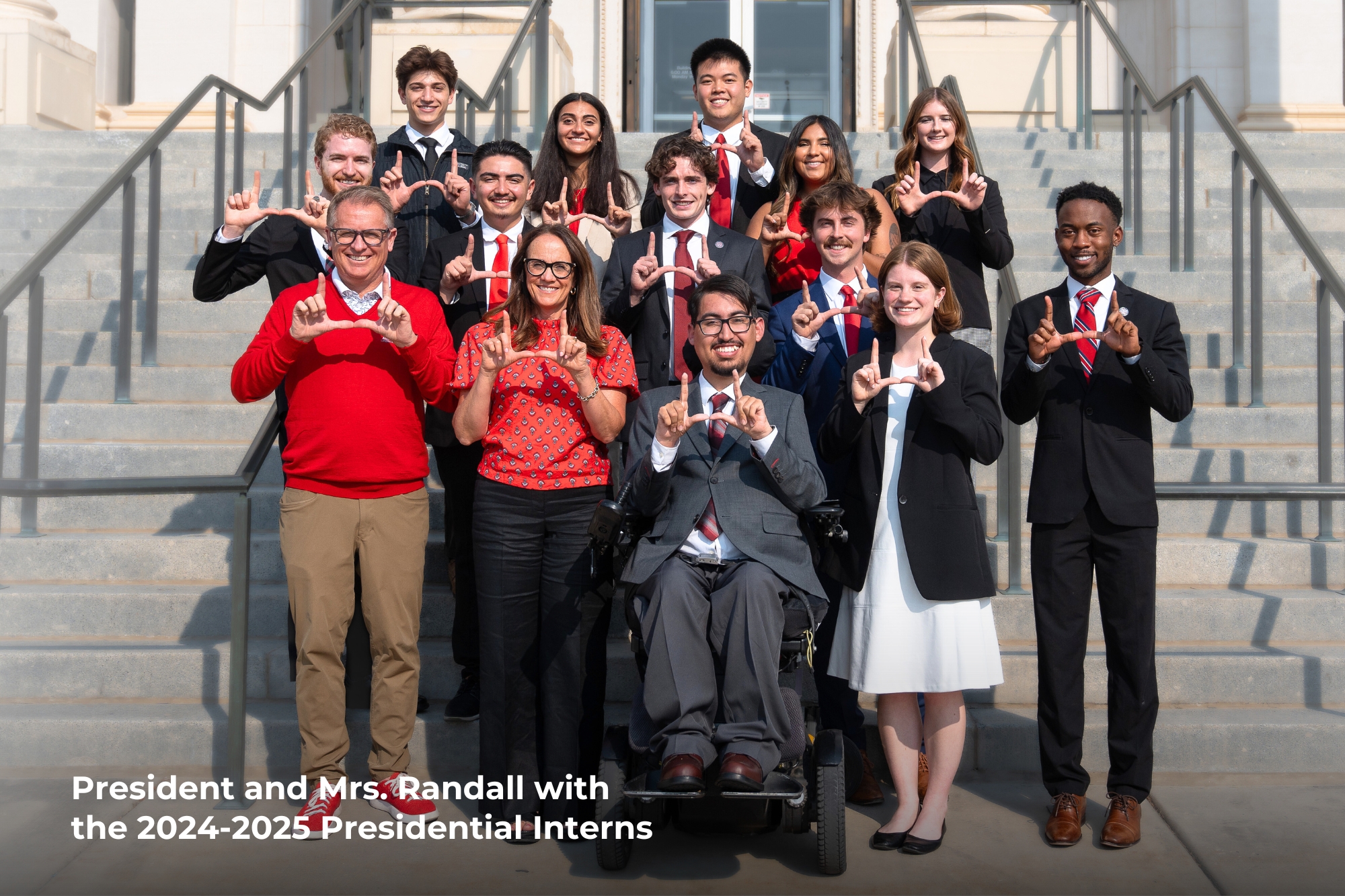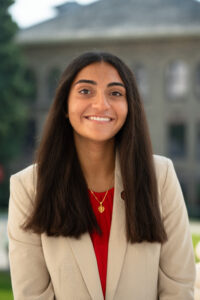
My experiences at the U have shown me how science can be a powerful tool for change, and I’m excited to keep building on that foundation.
As I progressed through my undergraduate courses, I found myself increasingly curious about the social determinants of health—especially how factors like bias, policy, and sociocultural norms interact to shape health outcomes. This led me to pursue dual degrees — biology and Health, Society & Policy — and seek research experiences that integrate both perspectives.

2024 Presidential Intern
September 4, 2024
Photo by Harriet Richardson
My undergraduate honors thesis project (mentored by Melissa Watt, PhD, College of Medicine) explores cancer-related stigma and social support among patients in both Utah and Malawi. More broadly, the project relates to the development of a global cancer stigma scale — a validated tool designed to measure how negative perceptions and biases surrounding cancer manifest across diverse cultural and healthcare settings. Stigma surrounding a cancer diagnosis can lead to shame, isolation and reduced engagement with care, impacting patients’ communication, mental health and overall well-being. By identifying these barriers and understanding their effects, this work aims to provide researchers and healthcare providers with insights that can guide effective, culturally sensitive interventions and improve patient outcomes.
My involvement with undergraduate research has transformed my educational journey, and I feel that such opportunities should be readily accessible to all students. I’m currently serving as a presidential intern, in the Presidential Internship in Higher Education Program. As part of this role, I’m working with the Science Research Initiative team in the College of Science on their Career Accelerator Program (SRI-CAP) to help expand access to research experiences and industry-oriented professional development opportunities for students.
One of my favorite biology courses was Desert Field Ecology (BIOL 5455) taught by Dale Clayton. As part of this course, we spent a week at a field station in the Sonoran Desert in southern Arizona, learning about desert ecosystems and practicing field research methods while surveying plants and birds in the area. This course introduced me to a different way of thinking and conducting research in the ecological sciences.
I’m grateful for the interdisciplinary education that I’ve received during my time at the U, and I look forward to applying these experiences as I continue my career. I hope to bridge research, science and health policy to contribute to the development and implementation of sustainable health solutions. My experiences at the U have shown me how science can be a powerful tool for change, and I’m excited to keep building on that foundation.
–Nehal Bakshi is a senior from Provo, Utah double majoring in biology (honors) and the Health, Society & Policy Program. She was also featured on Humans of the U (read more)
By: Tanya Vickers, Communications, School of Biological Sciences
You can email us at sbs-media@biology.utah.edu with questions, ideas, or to suggest a student story
